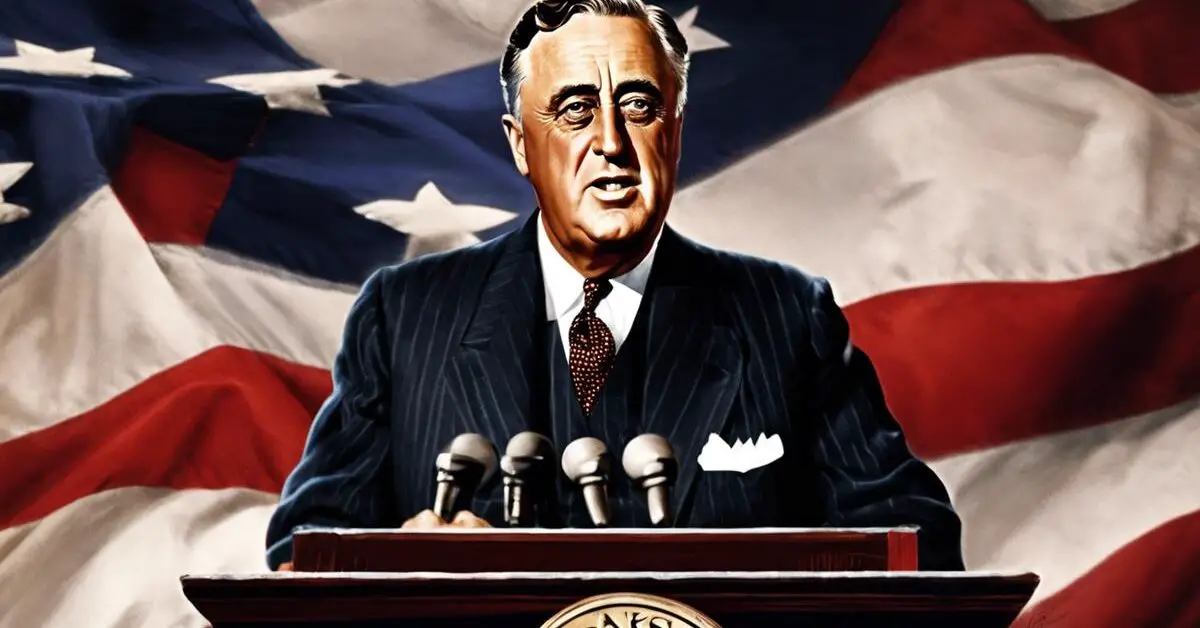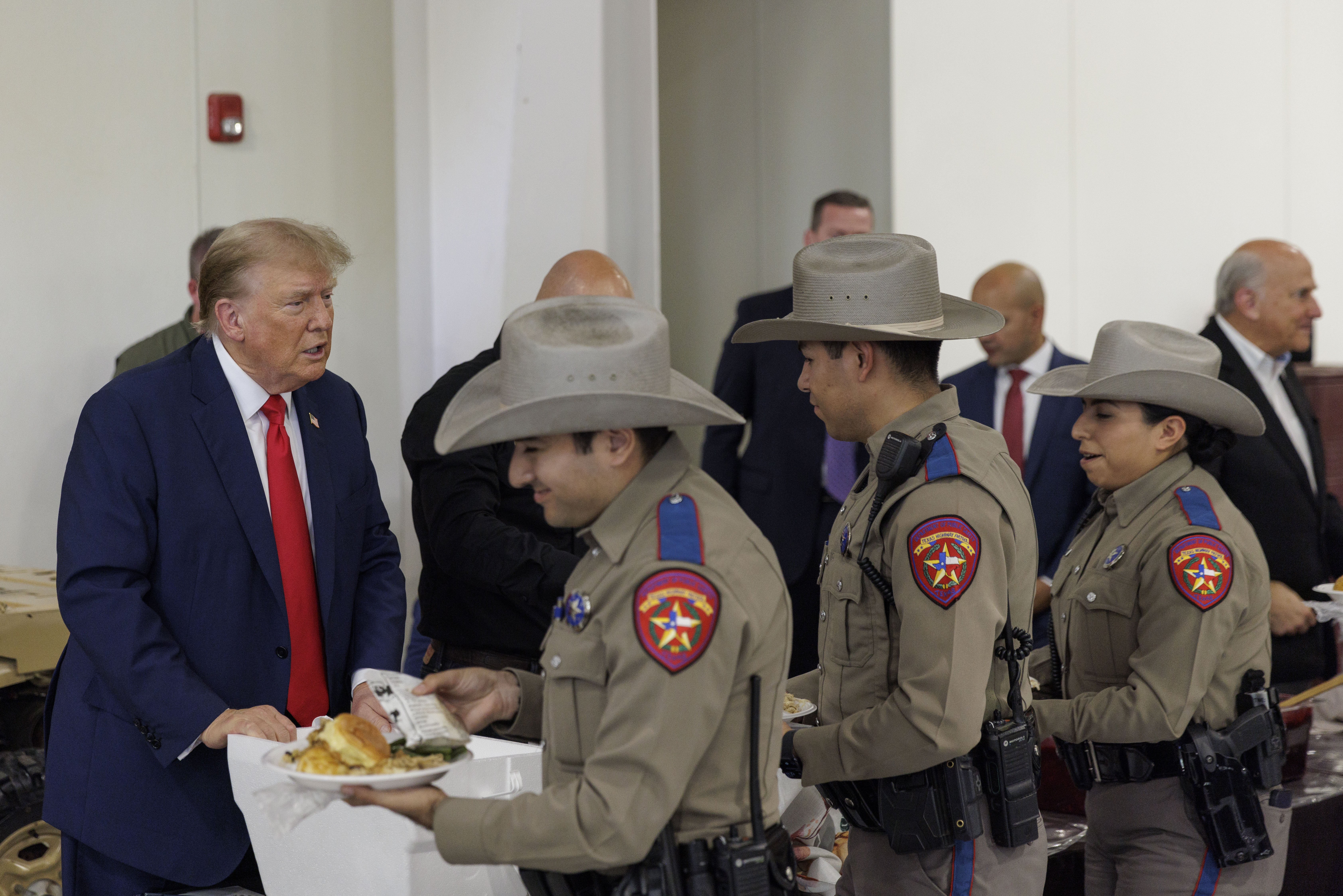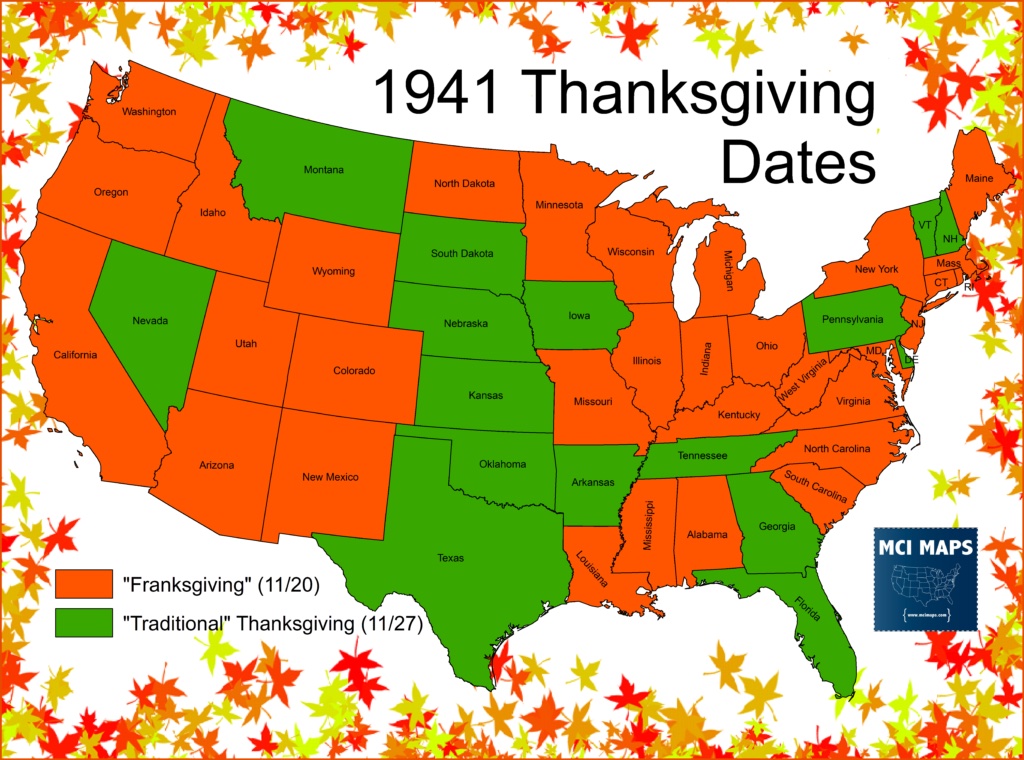




Seventy-five years ago, President Franklin Delano Roosevelt called for the Four Freedoms: freedom of speech and expression, freedom of religion, freedom from want, and freedom from fear [18bdc860]. In a recent opinion piece by John Nichols in The Capital Times, the current state of division and tension in America is discussed. The article highlights the rise of antisemitism, Islamophobia, racism, xenophobia, and anti-trans hate, as well as the use of divisive rhetoric by former President Donald Trump. It emphasizes the importance of unity and communication, drawing inspiration from FDR's Thanksgiving proclamations that promoted liberal idealism and cooperation [18bdc860].
Nichols reflects on the significance of FDR's plea for unity, especially in the context of the current political climate where discussions of politics have turned uglier and families and friends are being torn apart by differences of opinion. The article calls for the binding of wounds, striving against disorder and aggression, and the lessening of distrust among people [18bdc860].
The article also explores the historical ties between Thanksgiving and the concept of freedom. It discusses FDR's Thanksgiving proclamations and their promotion of liberal ideals and cooperation. The piece draws parallels between FDR's vision and the challenges faced by society today, emphasizing the need for unity and communication to overcome division and promote a more inclusive and harmonious society [18bdc860].
In a related historical context, an article by Laura Belin in Bleeding Heartland sheds light on Iowa's opposition to changing Thanksgiving celebrations in the past [73ccfb35]. In 1939, President Franklin Delano Roosevelt moved Thanksgiving from the last Thursday of November to the fourth Thursday to boost post-Thanksgiving sales. However, Iowa and other Republican states opposed the change. Despite FDR declaring an early Thanksgiving in 1940 and 1941, Iowa remained steadfast in celebrating on the original date. Eventually, in 1941, a resolution was passed, setting Thanksgiving on the fourth Thursday of November. Iowa and most states followed suit in 1944 [73ccfb35].
The article highlights the irony of Iowa Republicans criticizing President Joe Biden's potential alteration of holiday traditions given their historical opposition to changing Thanksgiving. It serves as a reminder that the celebration of Thanksgiving has been subject to changes and debates throughout history, and that the current discussions surrounding the holiday are not unprecedented [73ccfb35] [18bdc860].
Former President Donald Trump issued several Thanksgiving messages on Thursday, praising the troops and mocking his political opponents. He criticized New York District Attorney Letitia James, accusing her of letting 'Murder & Violent Crime FLOURISH & Businesses FLEE.' He also targeted Judge Arthur Engoron, calling him 'Radical Left Trump Hating.' Trump accused President Joe Biden of having 'WEAPONIZED his Department of Injustice' and allowing the country to 'go to HELL.' He extended Thanksgiving wishes to 'all the other Radical Left Lunatics, Communists, Fascists, Marxists, Democrats, & RINOS, who are seriously looking to DESTROY OUR COUNTRY.' In a separate video message, Trump thanked God and praised the men and women in uniform. He acknowledged the difficult times the nation is facing but expressed hope for a stronger, safer, and more prosperous America. President Joe Biden also issued a proclamation calling for unity on Thanksgiving. The Biden-Harris campaign released contrasting statements, including one that counters 'crazy MAGA nonsense.' Trump's message also sought to counter criticism of Biden for inflation and the economy. In another video, Trump characterized the choice in the next election as one between 'war, poverty, and weakness' under Biden or 'peace, prosperity, and strength' under a second Trump presidency. [921d905b]
This article discusses how three U.S. presidents - George Washington, Abraham Lincoln, and Franklin Roosevelt - made Thanksgiving a national holiday and what they were thankful for. All three presidents faced financial challenges related to war and used the 'American system' of banking and finance, which involved sovereign or government-issued money and credit. The article highlights the current state of the U.S. economy, with a federal debt of $33.7 trillion and a military budget approaching one trillion dollars. It also explores the history of funding during the Revolutionary War, the establishment of the First and Second Bank of the United States, the issuance of U.S. Notes, and the creation of the Federal Reserve. The article emphasizes the importance of affordable credit for economic development and proposes the establishment of a National Infrastructure Bank in the United States, following the model of China's development banks. [3a7efb51]
The article explores the historical context and impact of President Franklin D. Roosevelt's decision to move the date of Thanksgiving during the Great Depression. The shift from the last to the third Thursday of November, known as 'Franksgiving', aimed to stimulate the economy by extending the holiday shopping season. However, the decision sparked controversy and divided the nation. The term 'Franksgiving' was coined to describe the new date and the public outcry eventually led to Congress passing a law in 1941 to establish the fourth Thursday in November as the official Thanksgiving Day. The article also discusses the origins of Thanksgiving, the efforts to standardize the holiday, and the long-lasting effects of Roosevelt's decision on American traditions and labor culture [496d37b4].